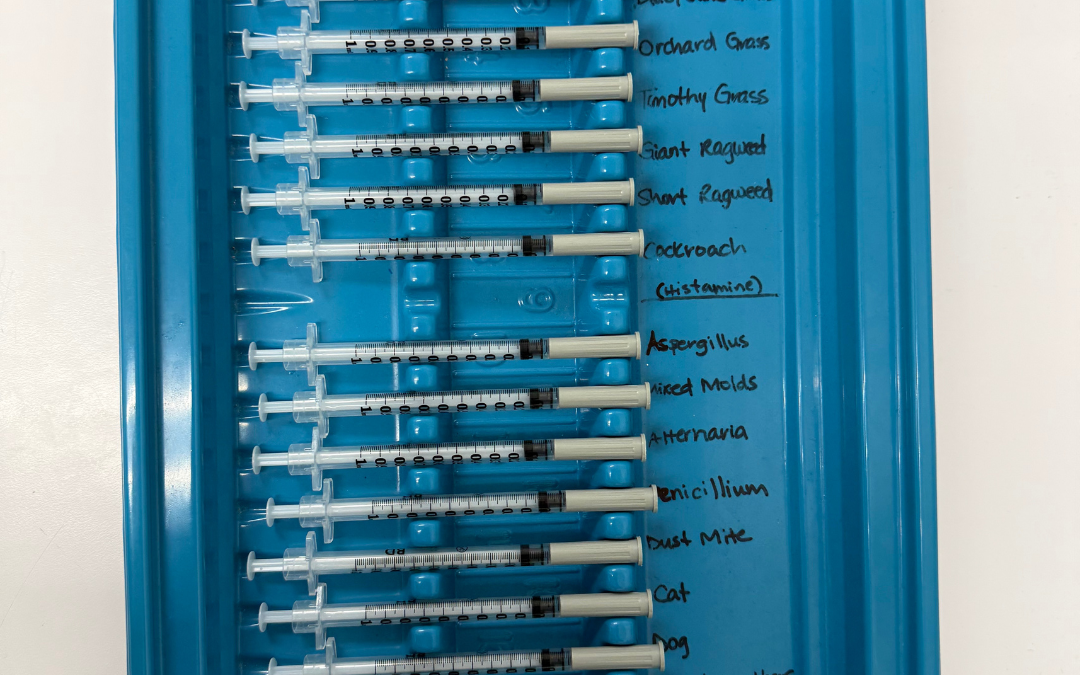Allergies are a common issue that affects millions of people worldwide. Whether it’s pollen during spring, dust mites at home, or pet dander, allergens can trigger uncomfortable and sometimes debilitating symptoms such as sneezing, congestion, itchy eyes, and even severe reactions like anaphylaxis. If you’re dealing with persistent symptoms and suspect you might have allergies, allergy testing can help you identify what’s triggering your discomfort, so you can take the necessary steps to manage and treat your symptoms.
But what exactly does allergy testing involve, and how can it help you? In this blog, we’ll explore the different types of allergy tests, what you can expect during the testing process, and how allergy testing can provide valuable insights for better allergy management.
Why Should You Get Allergy Testing?
Allergy testing is essential if you’re dealing with chronic symptoms that affect your daily life. Some of the key reasons to consider allergy testing include:
-
Persistent Symptoms: If you’ve been experiencing symptoms like sneezing, nasal congestion, itchy eyes, skin rashes, or difficulty breathing, it could be a sign of an allergic reaction. Testing helps pinpoint the cause.
-
Avoiding Triggers: Once you know what allergens are causing your symptoms, you can take steps to avoid them and minimize discomfort.
-
Better Treatment Plans: Allergy testing can help your allergy provider create a personalized treatment plan that could include medication, immunotherapy (allergy shots), or lifestyle changes.
-
Understanding Severity: Allergy testing can also help determine how severe your reactions are, which is important when managing and treating allergies effectively.
What Are the Types of Allergy Tests?
There are several different allergy tests available, each designed to identify specific allergens and provide detailed information about your allergic sensitivities. The most common types of allergy tests are:
1. Skin Prick Test (SPT)
The skin prick test is one of the most common methods for diagnosing allergies and is considered the gold standard. It’s fast, simple, and relatively painless. During the test, our team will apply small amounts of various allergens (such as pollen, pet dander, or dust mites) to your forearm or back.
After about 15 minutes, staff will examine the test sites for any reactions, such as red, raised, itchy bumps (hives). A positive reaction indicates a positive reaction to that particular allergen. Results are immediately reported, allowing discussion with your provider afterwards.
2. Intradermal Skin Test
An intradermal skin test is used for allergens that may not produce a strong enough reaction with the skin prick test. In this test, the allergen is injected under the skin. Results also happen after a 15 minute waiting period.
3. Blood Test (Specific IgE Test)
If a skin test is not an option for you due to conditions like severe eczema or difficulty with skin testing, a blood test may be an alternative. The blood test measures the amount of specific IgE antibodies (which your body produces when it’s allergic to a substance) in your bloodstream. This test can detect allergies to things like foods, medications, and environmental allergens. Results can take a few days to a week to come back, as the lab needs time to test for various allergens.
What to Expect During Your First Appointment:
-
To skin test, you must be off all antihistamine containing medications for at least four days.
-
Please expect your appointment to last 2-3 hours.
-
Initial visits will consist of a full history, physical exam, and visit with a provider. A variety of testing and treatment (spirometry, breathing treatments, skin testing) may be performed. Medication demonstration, additional testing, labs, or referrals may be a portion of your visit, depending on your case.
What Happens During an Allergy Test?
Allergy testing is a straightforward process, but it’s essential to be prepared and understand what to expect. Here’s a general outline of the steps you’ll go through:
-
Consultation – Before the test, your allergy provider will ask about your symptoms, medical history, and potential allergens you’ve been exposed to. This will help determine the best type of test for you.
-
Test Administration – Depending on the type of test, you’ll either undergo a skin prick test or blood test. This process is generally quick and minimally invasive.
-
Reaction Observation – For skin tests, our team will monitor for any reactions at the test site. For blood tests, you’ll need to wait for lab results.
-
Review of Results – Once the results are in, your doctor will discuss the findings with you and explain which allergens triggered a reaction. They’ll also provide treatment options based on your results.
-
Treatment Plan – Based on the results, we will work with you to develop a personalized allergy management plan, which could include allergy medications, immunotherapy, and lifestyle changes to minimize exposure to triggers.
How Allergy Testing Can Help You
Once you know what you’re allergic to, you can take several steps to reduce your symptoms and improve your quality of life. Here’s how allergy testing can help:
-
Personalized Treatment: Allergy testing allows your doctor to recommend a personalized treatment plan tailored to your specific allergies, making it easier to find relief.
-
Avoiding Triggers: Once you know what triggers your allergies, you can take proactive steps to avoid those allergens, whether it’s staying indoors during pollen season or removing certain foods from your diet.
-
Improved Quality of Life: By managing your allergies effectively, you can enjoy a better quality of life, free from the discomfort of allergy symptoms. Allergy treatments like antihistamines, nasal sprays, or even allergy shots (immunotherapy) can help reduce symptoms over time.
-
Preventing Complications: Uncontrolled allergies can lead to more serious conditions like sinus infections, asthma, or eczema. Allergy testing helps prevent these complications by giving you the tools to manage your condition early.
Allergy testing is a crucial step toward understanding what’s triggering your symptoms and taking control of your health. With a variety of testing options available, allergy testing is more accessible than ever, offering a clear path toward relief.
Take control of your allergies today—schedule your allergy testing with us!





